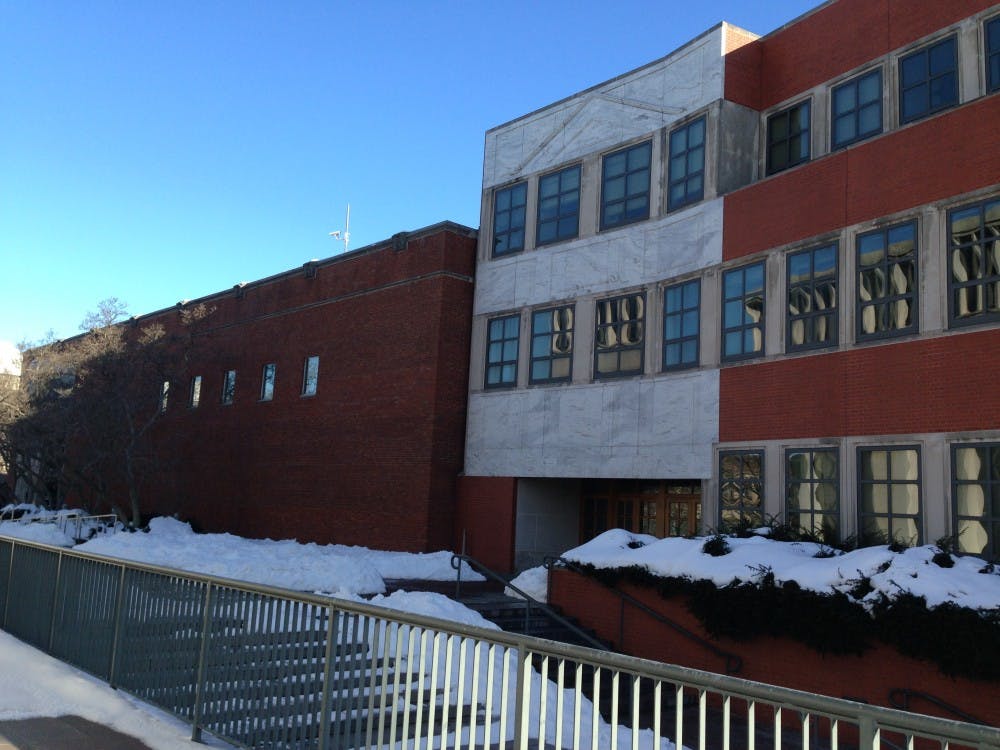On April 12, the James Madison Program in American Ideals and Institutions announced their selected fellows, a list that includes Dr. Marianna Orlandi, for the coming academic year. Last Friday, Yafah Edelman ’20 sent an email to residential college listservs alerting students to the fact that Orlandi has previously worked at the Center for Family and Human Rights (C-FAM), an organization that the Southern Poverty Law Center has classified as an anti-LGBT hate group.
In her email, Edelman, who identifies as transgender, wrote that Orlandi has previously written that laws allowing trans people to express their gender identities on legal IDs could aid terrorists. Edelman also cited a piece in an Italian publication in which Orlandi defends a conversion therapy organization based in New Jersey and claims that a judge’s ruling against it infringes on people’s rights to choose to explore heterosexuality.
Edelman’s email sparked discussion in the listservs over the Madison Program’s choice.
“One thing that makes me nervous is that, were I not to have stumbled onto this, almost by chance, there wouldn’t have been any discussion of this at all,” Edelman said. “I think this is a dramatic and somewhat scary event to be happening on our campus.”
Each year, the James Madison Program hosts a number of scholars with “established records as well as those who have recently received their doctorates as Visiting Fellows and Postdoctoral Research Associates,” according to the program’s website. In the program, the fellows are expected to “pursue their own research and writing, participate in courses, seminars and colloquia, and contribute to the intellectual life of the Department of Politics and Princeton University.”
Professor Alan Patten, chair of the politics department, described the James Madison program as “an autonomous program within the Department that has its own director and executive committee.” He otherwise deferred comment to the Office of Communications.
Orlandi will serve as associate research scholar at the James Madison program. She is one of 13 fellows invited to the program for the 2019–20 academic year, but the only one whose current position is not listed in the announcement as a Ph.D. candidate, faculty lecturer, or associate professor at an institution of higher learning. Instead, she is described as a “criminal lawyer” in private practice, a fact that Edelman pointed out in her email.
The organization Orlandi previously worked for, C-FAM, has “special consultative status” with the United Nations. C-FAM has been criticized for a fundraising image where a swastika is placed on top of a LGBTQ+ flag with the statement “Sexual Fascists Want to Take Away Your Rights.”

What makes Edelman particularly uncomfortable is that Orlandi was not invited as a one-time guest lecturer on campus, but rather will hold a year-long position under the University’s name, a privilege that will provide her with a mark of academic prestige Edelman does not believe Orlandi deserves.
Edelman said she would like to see the program rescind their invitation to Orlandi, but noted that if the program chooses not to do so, at the very least sparking discussion on the invitation itself is important.
“I’d like some assurance that if this thing happens, at least people know about it,” she said.
When asked whether there is a possibility Orlandi may be disinvited from the fellowship, University spokesman Ben Chang responded in an email to The Daily Princetonian, “No. Princeton is committed to free and open inquiry in all matters, and guarantees all members of the University community the broadest possible latitude to speak, write, listen, challenge, and learn.”

He added that free speech and inclusivity are both central to the University’s mission and should not be considered incompatible nor pitted against each other.
“If we are to have meaningful conversations about difficult topics on university campuses and in this country, we must care both about inclusivity and freedom of speech,” Chang wrote.
Chang also affirmed that “LGBT students (and faculty and staff) are valued members of the University community, full stop.”
“The University seeks to support and empower these students by providing community-building, education, events, and initiatives,” he added. “Through the LGBT Center, in particular, we strive to affirm and help students - including around issues of free speech and the classroom.”
Orlandi did not respond to multiple requests for comment by the ‘Prince’ in time for this story’s publication.
In an email statement to the ‘Prince,’ Robert P. George, the director of the James Madison Program and the McCormick Professor of Jurisprudence in the Department of Politics, lauded the University’s strict respect for the principles of academic freedom.
“It would be improper for any unit of the University to favor or disfavor a person for employment of any type based on agreement or disagreement with an individual’s views on controversial moral, political, or cultural matters,” he wrote. “We have no ‘orthodoxies’ and do not permit others to impose such things on us. We do not permit any organization to put candidates for positions (or admission) here on a ‘do not hire’ (or ‘do not admit’) list.”
George added that his own presence at the University, as well as that of his colleague Peter Singer, is evidence of how viewpoint diversity is valued at the University.
“At some colleges and universities, people who hold views that deviate from the majority opinion on campus place themselves at risk of being excluded. That is not the case at Princeton,” George explained. “Professor Singer can advocate for the moral permissibility of infanticide without fear of retaliation or discrimination; I can advocate strongly for the pro-life position equally without fear.”
Edelman addressed this academic freedom argument by noting that in the case of Orlandi, her personal opinions, particularly on LGBTQ+ rights, appear to be an essential part of her scholarship, making it impossible to separate between her personal and scholarly views.
Edelman said she has spoken to a few people who responded to her listserv email with concern, but is not yet certain whether they will be organizing any protest action.








